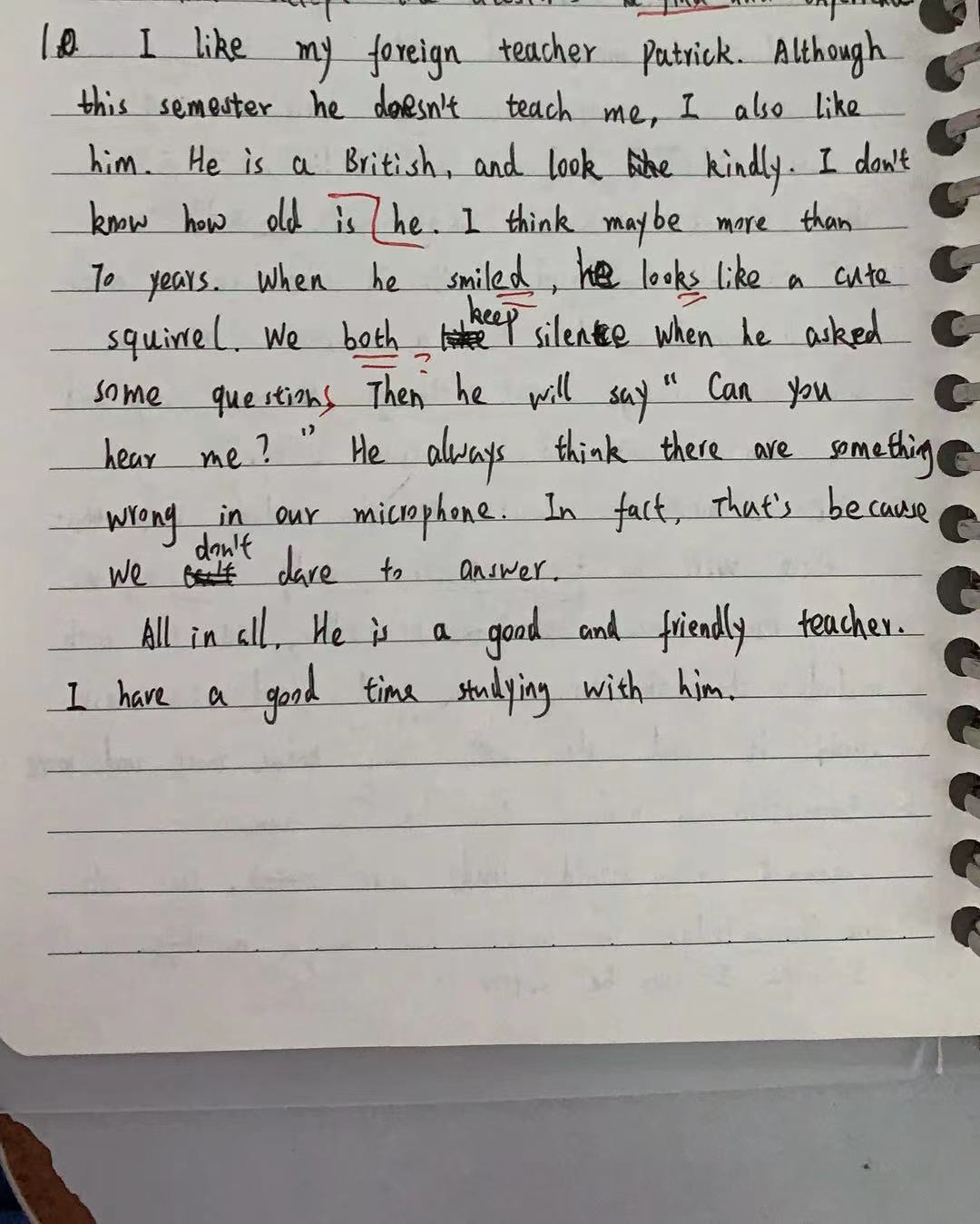 This is part of an essay written by a student I taught on an online course for a Chinese university. It is interesting that she says she and her partner dare not speak, which is a major constraint in a speaking course. This perhaps reinforces my view that it should have focused on writing skills and teachers who could teach face to face should have taught speaking.
This is part of an essay written by a student I taught on an online course for a Chinese university. It is interesting that she says she and her partner dare not speak, which is a major constraint in a speaking course. This perhaps reinforces my view that it should have focused on writing skills and teachers who could teach face to face should have taught speaking.
It is interesting that she overstated my age by at least ten years. I suppose 60 year olds look ancient for 18 year olds.
Comments
New comment
Hi Patrick,
Thanks for sharing this. As a language teacher of 35+ years, I quite understand your conclusion that this only goes to confirm your belief that your online course should have concentrated on writing. However, I do wonder if there haven't been benefits which perhaps were not immediately visible or evident in any way. And which you obviously can't measure. The students' clear appreciation of working with you makes me wonder whether any anxiety linked to the silences could also have opened up cognitive and emotional gateways in their learning process. And who knows whether they would have found responding verbally during face-to-face learning any easier. That could be even more of a challenge.
Regards,
Nicky
New comment
Thanks for the comment, Nicky
I see what you mean but I have worked in China with students at lower levels than this and in face to face classes, they may have been shy but they would not completely avoid speaking in this way. The technology seemed to provide more scope for this silence. Until the essay, I did not even know that they could hear me but just did not "dare" to speak. Actually in my OU work, I find some students are not willing to speak but will often use the text box (and often there is no problem with that on my courses although it clearly is a problem if speaking skills are being taught and it can sometimes be a slow way of working).
New comment
Hi Patrick
The fact that your student overstated your age is most likely due to her foreign origins. For example, you are likely to face the same difficulty when affirming age on persons of Chinese or African descent. The reason for this is that we learn to estimate the age of people in our society due to the special characteristics of the race or ethnic group to which we belong. Therefore, the likelihood of error in assessing other groups increases.
Another fact that your student and her partner “did not dare to speak” may also be related to this characteristic of Asian culture, where subordinates are not actively involved in dialogue with their superiors, teachers, etc.
It is curious that my secondary school-age children use the term “teacher's pet” to refer to someone who actively participates in the lesson. In vain I tried to prove to them that if everyone is silent, then there will be little sense from such a lesson 😊.
HelenaNew comment
Thanks for the comments, Helena
I think your first point may be true to an extent although I think perhaps it is lack of familiarity with people from different origins. I spent quite a lot of time in China and have quite a lot of contact with people of Chinese origin and I think I am no worse at estimating their age than people of white British origin.
The issue of not wanting to speak in classes might not be so uniquely Chinese. In many of my tutorials at the Open University, some students are reluctant to speak as well.
I remember the issue of some pupils being called teacher’s pet and, of course, as an adult, this seems strange. It may be a kind of assertion of the pupils’ identity as young people where they do not want to get too close to older people. This might be linked to the use of words like “hench” that are used to exclude older people.